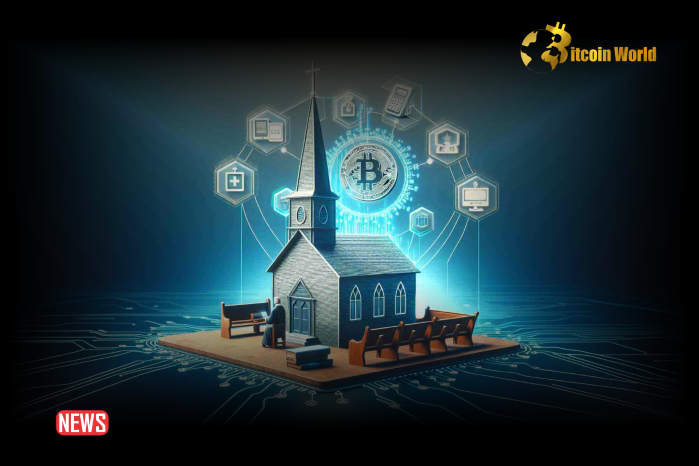Imagine a church building funded not by traditional donations, but by cryptocurrency. That’s exactly what’s happening in Colorado. The Colorado House of Prayer is breaking new ground by tokenizing their main chapel, the “Old Stone Church,” to raise $2.5 million. Is this the future of fundraising? Let’s dive in.
What’s Happening at the Old Stone Church?
The Colorado House of Prayer, a network of affiliated church groups, is using a novel approach to purchase their historic chapel. Here’s the breakdown:
- The Goal: Raise $2.5 million to secure ownership of the “Old Stone Church.”
- The Method: Tokenization – dividing the building into digital shares called “Stone Coin.”
- The Technology: REtokens real estate token on the Polymesh private blockchain.
- The Inspiration: According to Pastor Blake Bush, the idea came from a spiritual experience.
According to Bush, the idea to tokenize the building came to him during a spiritual experience.
“I heard the Lord say, ‘tokenize the building,’” Bush told Forbes, emphasizing that this direction was the culmination of years of prayer.
He firmly believes that this project is a mission to reclaim what he refers to as “God’s house.”
Why Tokenize a Church?
Why not? In an era of rapidly evolving financial technology, the church is looking to tap into new funding streams. Tokenization offers several potential benefits:
- Accessibility: Allows a broader range of investors, even those outside the congregation, to participate.
- Transparency: Blockchain technology provides a transparent record of transactions.
- Innovation: Positions the church as a forward-thinking institution embracing new technologies.
“Stone Coin”: How Does It Work?
The “Stone Coin” is the digital asset created to fund the purchase. It’s tied to a real estate token, created by REtokens, and operates on the Polymesh private blockchain. This allows the building to be divided into digital shares, which can be purchased by investors. The success of this initiative hinges on the flow of positive investments and the reactive value of the tokens.
So far, the project has raised about half of its target and is actively seeking additional investors to meet its goal.
What are the Risks?
Tokenization isn’t without its challenges. Here are a few potential downsides:
- Volatility: Cryptocurrency values can fluctuate significantly, impacting the value of “Stone Coin.”
- Security: Blockchain platforms are vulnerable to hacks and security breaches.
- Regulation: The regulatory landscape for cryptocurrency is still evolving, creating uncertainty.
- Control: Opening up token sales to individuals outside the congregation could potentially expose the church to the risk of outsiders gaining control of the tokens.
When asked about the possibility of unwelcome groups, such as Satanists, acquiring tokens, Bush responded confidently, saying, “Let’s introduce you to Jesus.”
The Future of Tokenization
This Colorado church’s initiative is part of a larger trend. The tokenization market is projected to explode in the coming years. Consider these statistics:
- The Global Financial Markets Association (GFMA) and Boston Consulting Group estimate the global value of tokenized illiquid assets will reach $16 trillion by 2030.
- Citigroup suggests that $4 trillion to $5 trillion worth of tokenized digital securities could be minted by 2030.
Major companies like Goldman Sachs are already making significant moves in the tokenization space, planning to launch new tokenization products driven by growing client interest.
Tokenization: A New Era for Assets?
The Colorado House of Prayer’s innovative approach highlights the potential of tokenization to revolutionize fundraising and asset management. While risks exist, the potential rewards are significant. Whether it’s real estate, art, or even a church, tokenization could unlock new opportunities for investment and ownership. Keep an eye on this space – it’s likely to transform how we think about assets in the years to come.
Disclaimer: The information provided is not trading advice, Bitcoinworld.co.in holds no liability for any investments made based on the information provided on this page. We strongly recommend independent research and/or consultation with a qualified professional before making any investment decisions.


